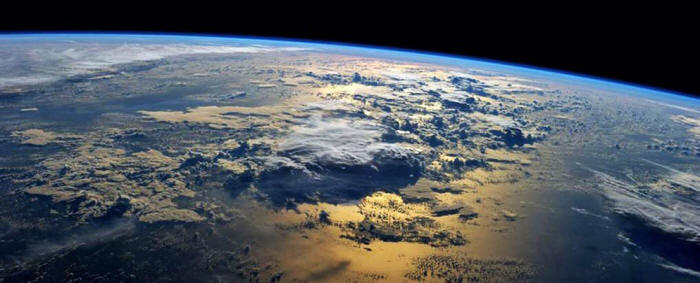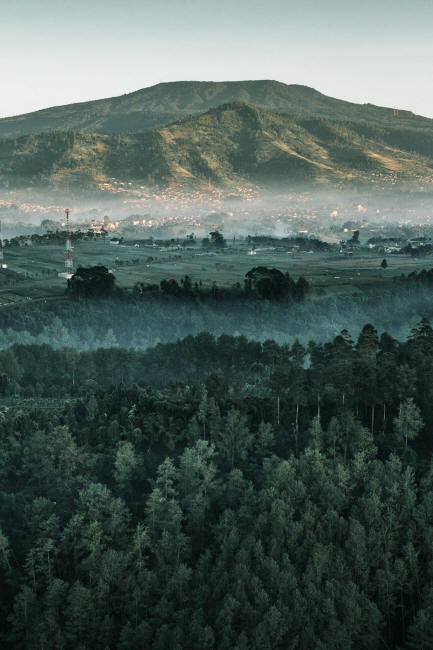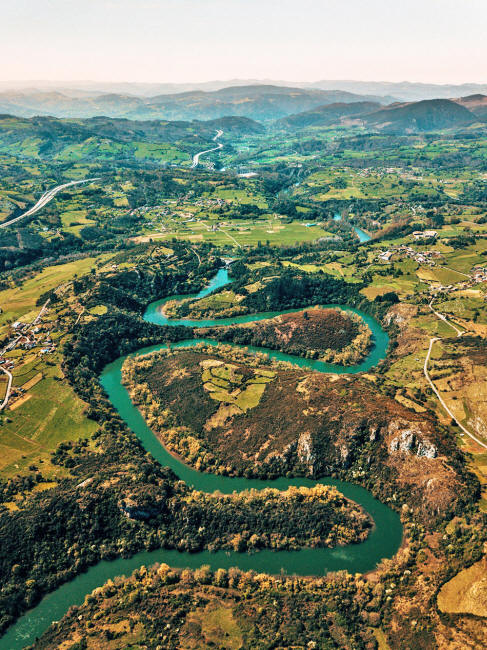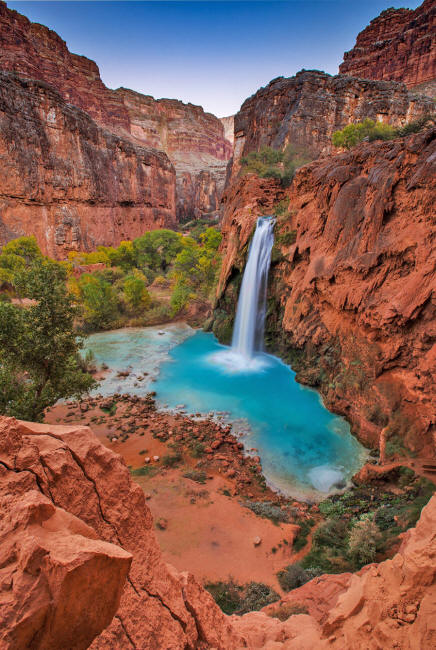|

by A.S. Deller
March 11,
2019
from
Medium Website

Credit: NASA
Currently
home to
7.7 billion human
beings…
A world which has seen
108 billion humans
exist since the beginning of our species…
Earth has been our home for several hundred thousand
years, and home to millions upon millions of species,
and trillions of organisms, for over 3 billion years.
By 2050, United Nations population researchers project
that there may be 9.7 billion people alive at once.
The earliest human
ancestors appeared in Africa between 5 and 7 million years ago, with
the first of them spreading outward into Europe and Asia beginning
roughly 2 million years ago.
Our most modern form,
Homo sapiens, evolved some 200,000 years ago in Africa and began
to migrate into Asia a mere 100,000 years later.
Being of 'superior'
intelligence - and perhaps more mentally capable of
violence - Homo sapiens outcompeted, killed off, and
interbred with its nearest relatives (such as Homo erectus
and Homo neanderthalensis).
For the vast majority of our time here, we have lived mostly in
harmony with the rest of the natural world, hunting and foraging in
bands of 25 to 50 people.
With the advent of plant
cultivation some '23,000' years ago on the shore of the Sea
of Galilee and large scale agriculture '12,000' years ago,
the population of humanity boomed into massive settlements.
The age of empires
began...
People were able to
gather in the thousands and live together in a single place for
decades in places like Jericho and Uruk. Later, cities
like Mari and Ur in Mesopotamia grew to over 50,000
and 100,000 people respectively.
By the end of the first
century BC, Rome became the first city to reach a population of over
1 million people, an agglomeration of minds and bodies that truly
began to transform the world at large.
Earth is now, has always been, and will always be our home, but we
have treated the planet as if we were the proverbial "terrible
tenants" who use and use and use without performing the maintenance
needed to prevent the place from becoming a dump.
…today wildlife
accounts for only 3 percent of earth's land animals; human
beings, our livestock, and our pets take up the remaining 97
percent of the biomass.
This Frankenstein
biosphere is due both to the explosion of industrial
agriculture and to a hollowing out of wildlife itself, which has
decreased in abundance by as much as 50 percent since 1970.
This cull is from
both direct hunting and global-scale habitat destruction:
almost half of
the earth's land has been converted to farmland...
Peter Brannen

Photo by Ramdan Authentic
on
Unsplash
Leaving Earth does not mean "leaving Earth behind".
We must address the
problems we face on Earth today - there is no putting them off.
Overpopulation, food and
water shortages, pollution and environmental collapse are
only a few of the terrible situations we have gotten ourselves into.
No matter what side you are on regarding the idea of
climate change, there are
indisputable scientific facts that have been established by
nonpartisan organizations that show sea levels are rising due to the
'melting'
of glaciers and ice caps.
The New York State
Department of Environmental Conservation is preparing plans
based on research that shows sea levels will rise
18 to 50 inches along the state's
coast over the course of this century.
The National Oceanic
and Atmospheric Association (NOAA) points out that sea levels
are rising at about an
eighth of an inch per year.
By the end of the 21st
century, the 40% of Earth's population that lives along its
coastlines will mostly be displaced to the interiors of their
current countries.
It is imperative that we be proactive. There is a chance we may
'discover'
intelligent life forms that we enter into conflict with,
but it is also possible we find intelligent aliens that we become
allies with.
If the Milky Way is
indeed teeming with
advanced civilizations, it makes
sense to try and enter into friendships with some of these as soon
as possible.
If we don't take the
initiative in seeking out these friends, we may be passing up the
opportunity to gain technological advancements and scientific
understanding that could take us hundreds or even thousands of years
to reach on our own.
[Fishing trawlers
have been responsible for] the removal of up to 90 percent of
all large ocean predators since 1950, including familiar staples
of the dinner plate like cod, halibut, grouper, tuna, swordfish,
marlin, and sharks.
As just one slice of
that devastation, 270,000 sharks are killed every single day,
mostly for their tasteless fins…
Peter Brannen

Photo by Diego Santos
on
Unsplash
Our Earth is unique, and through some amazing set of coincidences
managed to give rise to life, preserve that life for billions of
years and eventually yield intelligent life (us) that actually
possess the power to ruin - and protect - its environment.
However, our ability to
gather and analyze knowledge had led us to a point where we now
know, with little room for doubt, that the Earth will eventually
perish as our sun expands into a red giant in
about 5 billion years.
Yes, that IS a long, long time… so long that it is almost
inconceivable, and so long that it is unlikely humanity, or even the
farthest descendents of humanity, might still exist anywhere in the
cosmos.
But that is the end of
the line for us, no matter what, unless we figure out how to survive
elsewhere in our galaxy.
…the victims in the
animal world include scary apex predators that pose obvious
threats to humans, like lions, whose numbers have dropped from 1
million at the time of Jesus to 450,000 in the 1940s to
20,000 today - a decline of 98 percent.
But also included
have been unexpected victims, like butterflies and moths, which
have declined in abundance by 35 percent since the 1970s.
Peter Brannen

Photo by Stephen Leonardi
on
Unsplash
The damage has already been done...
There is no reversing
it in the immediate future. All we can do now is slow its progress
by enacting laws and policies that reduce the rate at which we
continue to harm our world.
We have to realize that there is a very real possibility that what
we have done so far will lead to conditions for humanity on Earth
that lead to ever-increasing war, starvation, and extinctions.
The worst parts of
existence today will continue to worsen throughout the century as
the effects of what we've done so far play out to their full extent.
We must look to the centuries after this one for our long-term
future on this planet.
While we do so, we also need to ensure we preserve technology,
culture and knowledge by heading off-world, to orbital space
stations and
Mars settlements - places where
whatever conflicts and disasters that threaten Earth are less able
to reach.
It is likely that we are 'one of only a few intelligent species'
(sic...) to have 'ever' evolved in the universe. We may
currently be 'the only' (sic...) intelligent species
currently in existence.
How sad it would be if we
became extinct, leaving the entire universe bereft the spark of
sentient minds, simply because we couldn't agree to be a little
pragmatic...?
|





